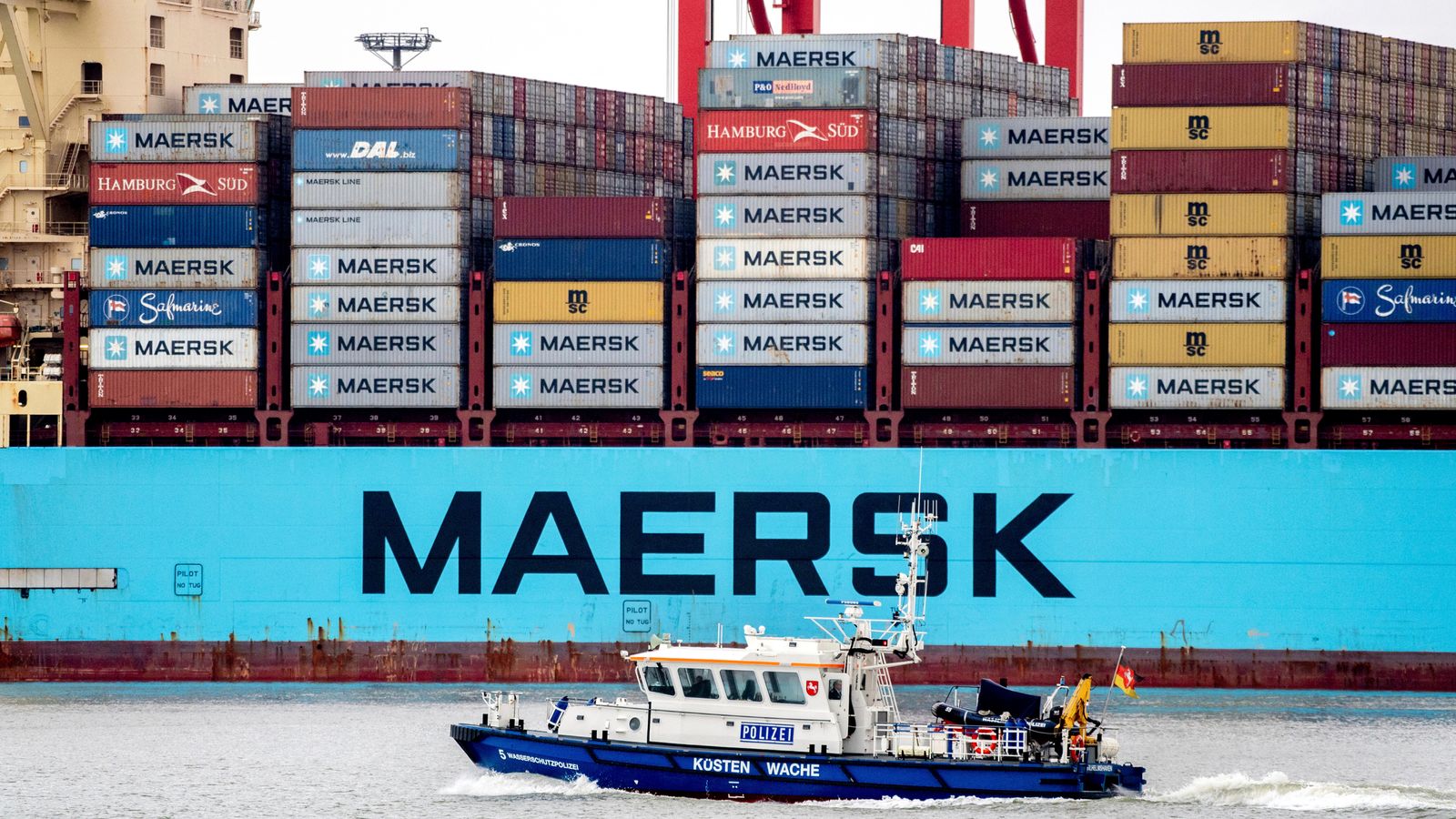Two of the world’s largest container ship operators have extended diversions from the Red Sea following an attack on a vessel at the weekend that has been blamed for a renewed oil price volatility.
Maersk had suspended, on Sunday, sailings near or via the Suez Canal after one of its giant carriers, the Maersk Hangzou, was targeted by Houthi militants – the latest in a string of attacks on shipping since November.
US military helicopters sank three boats, killing 10 militants, after receiving a distress call in the early hours of New Year’s Eve.
The response was part of a pledge last month involving several naval powers, including Britain, to protect international shipping in the area after rebels in Yemen said they would target any vessels seen to be serving Israel.
The Iranian-backed Houthis are also aligned to Hamas, the group that attacked Israel in early October sparking a war that has threatened to escalate more widely in the region.
“An investigation into the incident is ongoing and we will continue to pause all cargo movement through the area while we further assess the constantly evolving situation,” Maersk said in a statement.
“In cases where it makes most sense for our customers, vessels will be rerouted and continue their journey around the Cape of Good Hope.”
Maersk was understood to have had more than 30 container vessels ready to sail through Suez via the Red Sea.
Its decision followed hot on the heels of a similar move by rival Hapag-Lloyd.
The German firm said earlier on Tuesday that it would continue to divert its vessels away from the Suez Canal and send them via the Cape of Good Hope until at least 9 January.
The world’s fifth biggest container liner said it would decide then whether to maintain that diversion.
It has been in place since one of its ships was targeted off the coast of Yemen on 15 December.
The Suez Canal accounts for roughly a third of the world’s container ship journeys.
The continuing diversions add up to two weeks to passages from Asia due to the need to circumnavigate Africa.
Disruption to date has raised insurance costs, shipping fees due to higher fuel and crew costs – costs that can be expected to be passed on down the supply chain in the coming weeks and months.
The attack on the Maersk liner was reflected when financial markets opened for the first time after the New Year holiday.
Brent crude oil was trading 2% higher at $78 a barrel at one stage.
Read more from Sky News:
First-time buyers ‘fall to lowest level in a decade’
Aldi & Lidl report record Christmas sales
Market analysts said the potential for wider disruption to Middle East supply was firmly on traders’ minds.
“The oil price may be affected by the escalation… in the Red Sea over the weekend and the peak demand season during China’s spring festival,” Shanghai-based CMC Markets analyst Leon Li said, referring to the Lunar New Year holiday in early February.
However, oil prices were later flat on the day when US markets opened as investors’ expectations around interest rate cuts this year fell back, holding oil price gains in check.
A stronger dollar also weighed on prices.

